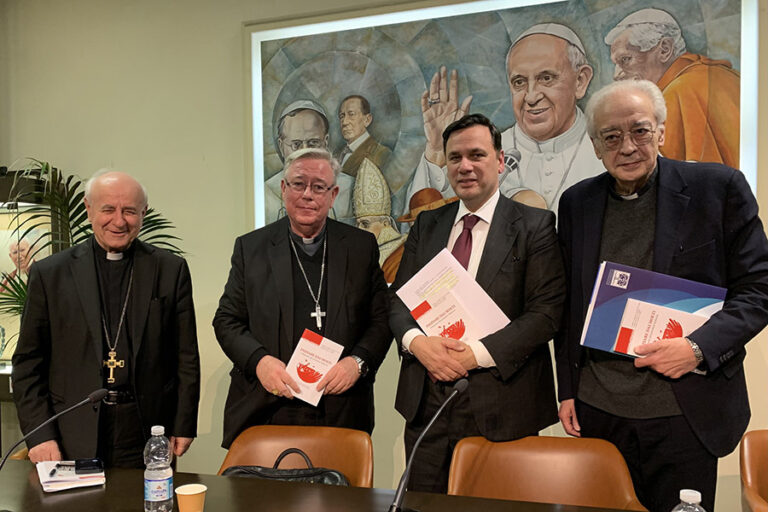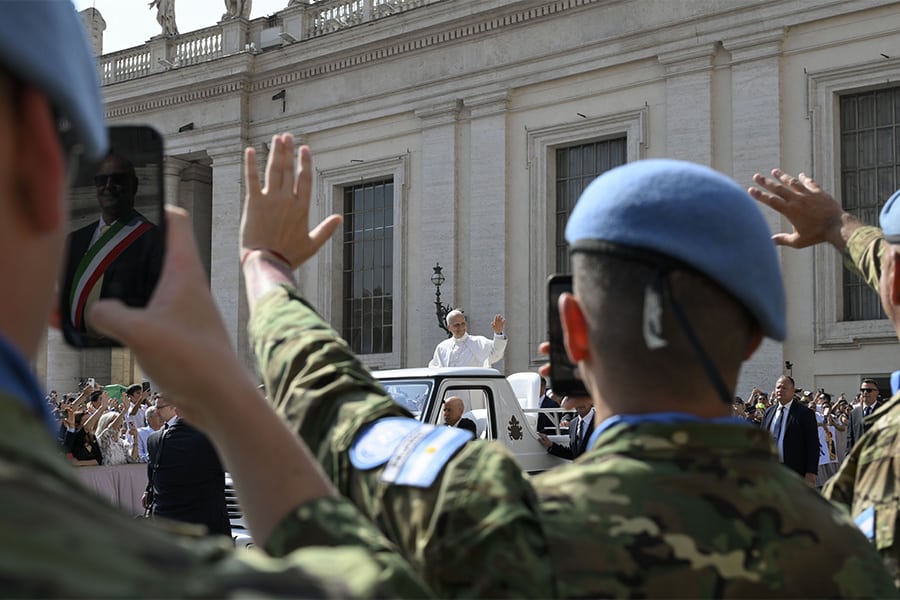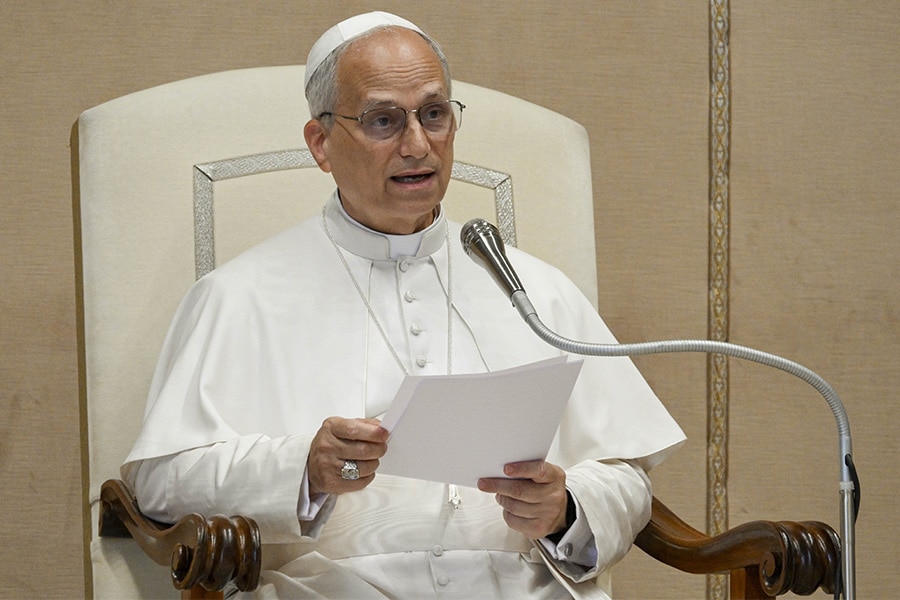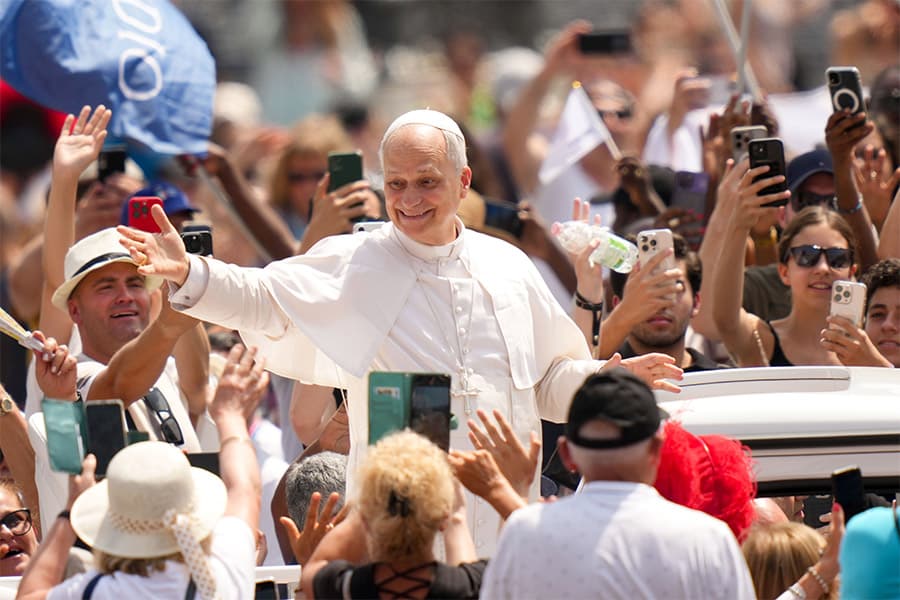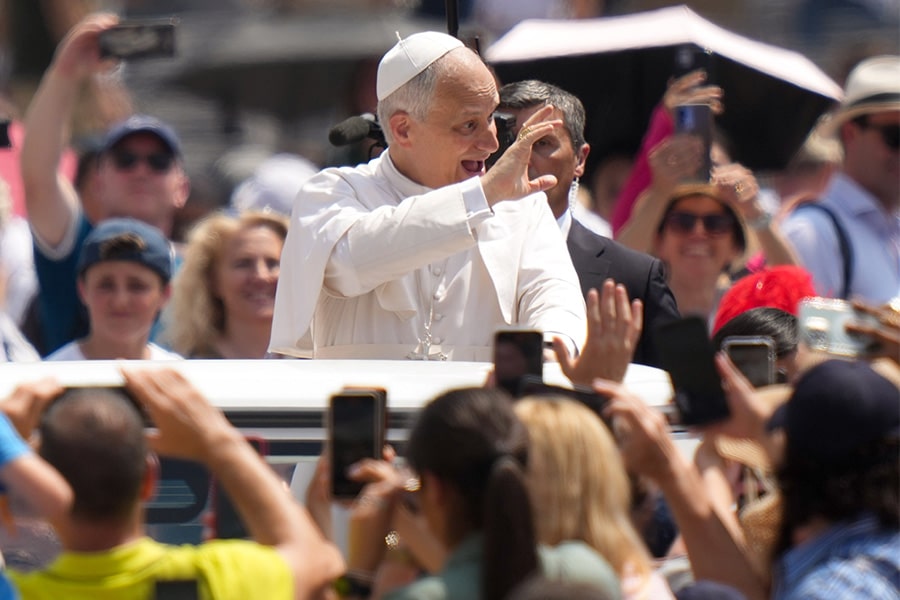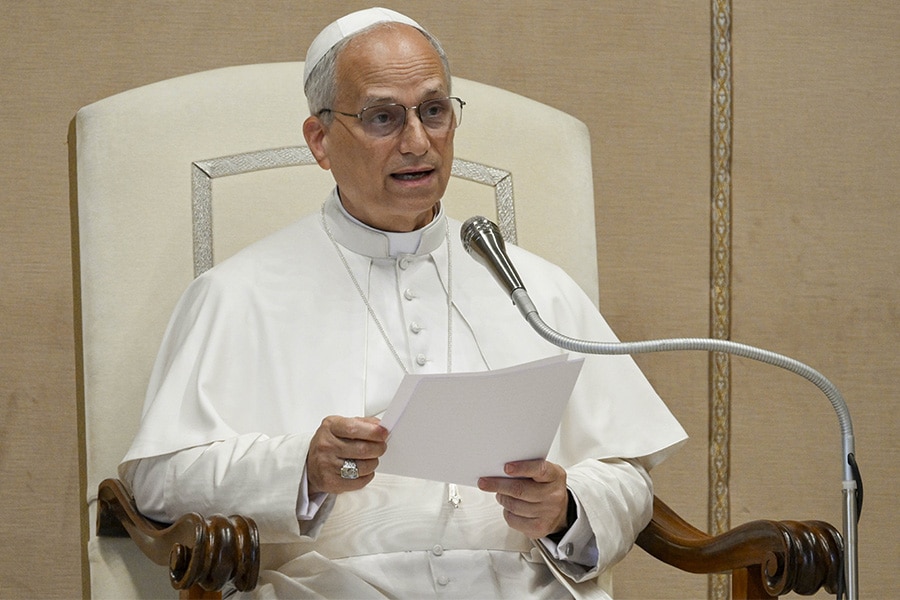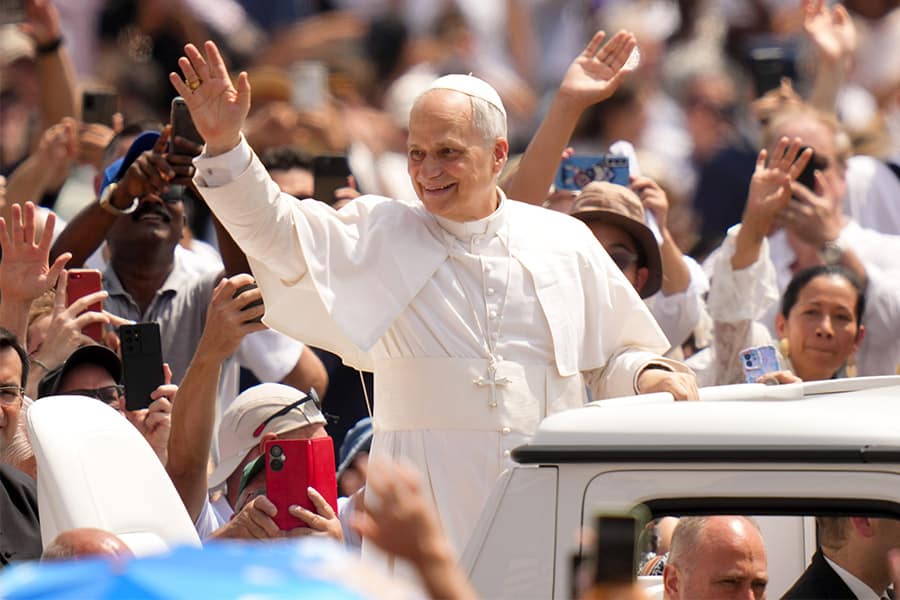VATICAN CITY (CNS) — If “liberty, equality and fraternity” are essential for human thriving, as has been generally accepted in the West since the Enlightenment, then the last element needs as much attention as the first two, including in Catholic theology, said leaders of the Pontifical Academy for Life.
The academy has launched a process of theological inquiry and cross-disciplinary discussion on fraternity and, in late March, published a book of theological essays in Italian under the title, “Beginning with the Many. Horizons of Fraternal Thought.”
Archbishop Vincenzo Paglia, president of the academy, said at the book launch March 27 that the academy has no intention of moving away from its traditional focus on bioethical issues, but also has been called by Pope Francis to engage scientists, theologians and ethicists in looking at “life understood in a very broad way.”
Eighteen months before publishing his encyclical “Fratelli Tutti, on Fraternity and Social Friendship,” Pope Francis had written to the Pontifical Academy for Life, asserting that “fraternity remains the unkept promise of modernity.”
In the letter, he spoke of the church’s mission of helping all people “see our human family as a sign of the abundant life of God the Father and the promise of a common destiny redeemed by the infinite love that even now sustains it in being.”
In “Fratelli Tutti,” Pope Francis wrote about the missing connections in the promotion of “liberty, equality and fraternity,” noting that “fraternity is born not only of a climate of respect for individual liberties, or even of a certain administratively guaranteed equality. Fraternity necessarily calls for something greater, which in turn enhances freedom and equality.”
“Social friendship and universal fraternity,” he wrote, “necessarily call for an acknowledgement of the worth of every human person, always and everywhere.”
But, as the theologian Isabella Guanzini wrote in “Beginning with the Many,” while freedom and equality can be guaranteed by law, fraternity is more of a “moral obligation” that a state can encourage but not force.
The call to fraternity, she wrote, responds to the “deep need for bonds and belonging” that people feel especially in an age of superficial, virtual connections.
The pope is calling for something more than “the tribalistic deviations of micro social groupings,” where people feel safe with like-minded people, she said. The vision is that of the Gospel, of recognizing all people as brothers and sisters created by God and offered redemption through Jesus.
Cardinal Jean-Claude Hollerich of Luxembourg, general relator of the Synod of Bishops, said that to get its message across, though, the church must change how it acts, speaks and relates to others. That change is particularly necessary if the church has any hope of reaching young people in increasingly secularized societies.
“Our preaching is no longer understood by people,” the cardinal said. “Secularization is advancing rapidly, you can see it especially in our Benelux countries, maybe less in Italy, but also there if you look at the statistics, which show that Catholicism is becoming weaker and weaker.”
The call for change “does not mean the truth we preach is no longer true,” he said; it simply means recognizing the need to proclaim that truth in a way that can touch hearts today.
The listening process conducted around the world for the synod on synodality has made it clear that people are still interested in the Gospel and in the church, Cardinal Hollerich said, but “they want a church that acts like Jesus did and, I think, for us it is necessary to do this for our own conversion.”
Such action, the cardinal said, is the only way to reach out to young people, “who are not in our churches” and who often see religion more as part of the world’s problems than as holding the answers they seek.
In “Fratelli Tutti,” he said, Pope Francis spent pages discussing the parable of the good Samaritan and insisted that stopping for the wounded man alongside the road, dressing his wounds and using his own money to ensure the man’s continued care is an example of and call to universal fraternity.
Today, the cardinal said, the church must be the good Samaritan, stopping to care for the injured, dazed and confused by entering into a relationship with them and caring for them.
“We must stop responding to questions no one is asking,” Cardinal Hollerich said. “We must listen and then get to work because humanity needs us.”
Read More Vatican News
Copyright © 2023 Catholic News Service/U.S. Conference of Catholic Bishops

